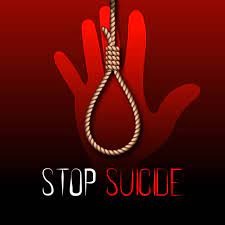| KASHIF SHAMIM SIDDIQUI
In recent developments, on Saturday[today] in Karachi, a significant event took place – the inaugural ceremony of Sindh’s first-ever medical guidelines for suicide prevention. This event was organized through a collaborative effort between the Pakistan Institute of Living and Learning (PILL) and the Sindh Health Department. The occasion was graced by the presence of Caretaker Health Minister Dr. Saad Khalid Niaz, Senator Dr. Karim Khawaja, Sindh Health Secretary Dr. Mansoor Abbas Rizvi, and several psychologists.
During the opening ceremony, Professor Imran Bashir Chaudhry, the CEO of PILL, provided an introduction to his organization and delivered a crucial message to the audience. He revealed a startling statistic: one person takes their own life every forty seconds worldwide, equating to 77 thousand suicides annually. In developing countries like ours, this number exceeds 70 percent.
I would like to express gratitude to Mr. Imran Bashir, who has brought attention to this critical issue. In recent years, Pakistan has witnessed a distressing surge in youth suicides, primarily attributed to the overwhelming injustices they face in various aspects of their lives. This alarming trend has prompted urgent calls for action from concerned citizens, activists, and mental health professionals.
The escalating prevalence of suicide among young Pakistanis is deeply disconcerting and highlights systemic issues that demand immediate attention. It not only reflects the personal struggles of these young minds but also the broader societal injustices they grapple with on a daily basis.
Several factors contribute to this crisis. The unequal distribution of quality education opportunities leaves many young Pakistanis with limited prospects for a brighter future, fostering feelings of hopelessness and despair. A high youth unemployment rate exacerbates their sense of injustice, as educated and talented individuals often struggle to find meaningful employment. Societal expectations, such as forced marriages and conservative norms, can weigh heavily on the mental health of young adults seeking autonomy in their life choices. The perception of a corrupt system that fails to hold those in power accountable fosters disillusionment and mistrust among the youth. A lack of awareness and the stigmatization of mental health issues prevent many young individuals from seeking help or support.
These are some of the key reasons motivating youth to consider suicide. However, there are solutions. To address this pressing issue, the government must invest in and expand mental health services to ensure that those in need can access support and treatment without fearing judgment. Initiatives should be implemented to ensure equitable access to quality education, bridging the gap between educational institutions and students in marginalized communities. Both the government and the private sector should collaborate to create more employment opportunities for the youth and support entrepreneurship initiatives. The stigma surrounding mental health must be challenged through public awareness campaigns and educational programs.
Strengthening the justice system and improving transparency in government institutions will help restore the trust of the youth in their nation’s institutions. These initiatives, when put into action, will undoubtedly help prevent youth suicides.
The increasing trend of youth suicide in Pakistan is a national crisis that requires immediate and concerted efforts from all sectors of society. It is the responsibility of the government, civil society organizations, and individuals to work together in addressing the root causes of this issue and providing young Pakistanis with the hope, support, and opportunities they need to build a better future.



Comments are closed.